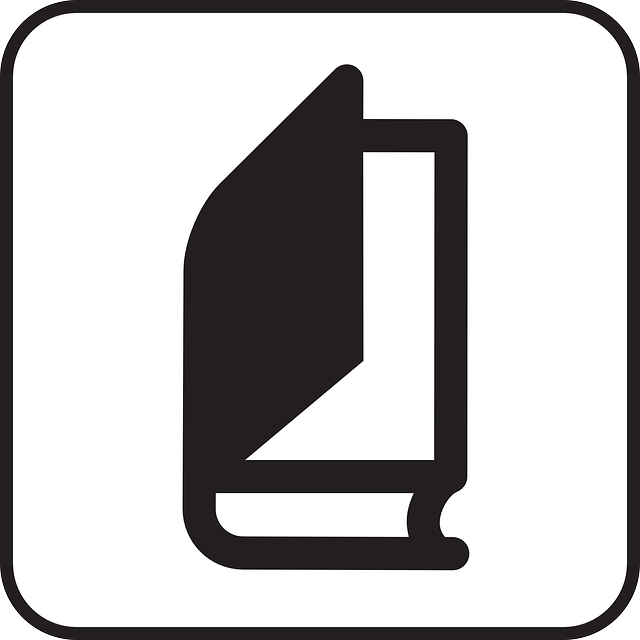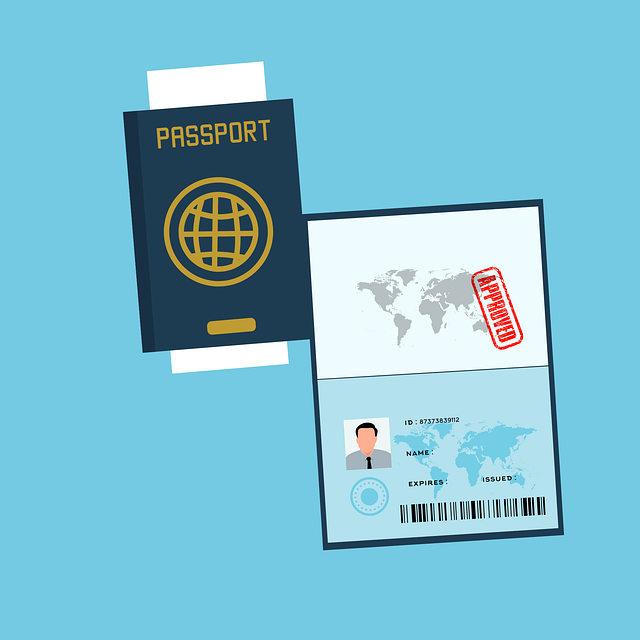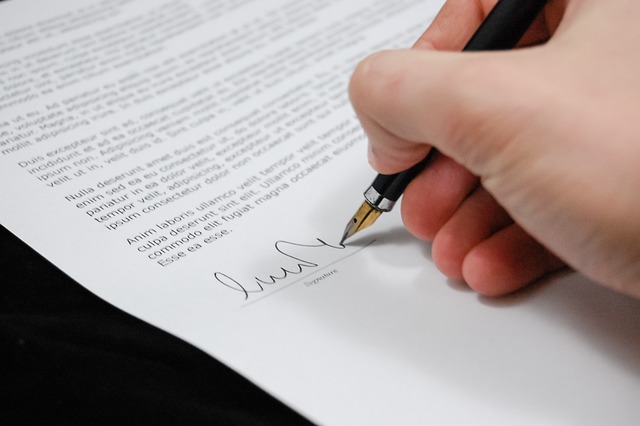UK Mergers and Acquisitions (M&A) Documentation Translation Services are essential for navigating complex legal, cultural, and regulatory landscapes in international M&A deals. These services ensure compliance, accuracy, and clarity in translations, reducing risks and delays. Employing experienced linguists with expertise in both source and target legal systems is crucial for protecting intellectual property rights and maintaining transaction integrity. Advanced translation technologies, including AI, are transforming the process, offering speed, efficiency, and precision while adhering to international standards like ISO 17100. Choosing human translators over machine translation minimizes inaccuracies that could lead to legal disputes or regulatory issues, ultimately facilitating successful global M&A transactions.
In today’s globalized business landscape, international mergers and acquisitions (M&A) have become increasingly common. However, navigating the complexities of these transactions requires meticulous attention to detail, particularly in legal documentation. This article explores the critical role of professional translation services in facilitating seamless UK Mergers and Acquisitions documentation. We delve into the challenges of translating merger contracts, including terminology and legal jargon, while emphasizing cultural considerations and ensuring accuracy. Additionally, we discuss the legal implications of machine translation versus human translators and present compelling case studies.
- Understanding the Complexities of International Mergers and Acquisitions
- The Role of Professional Translation Services in Legal Documents
- Challenges in Translating Merger Contracts: Terminology and Legal Jargon
- Cultural Considerations: Adapting Legal Language for Global Audiences
- Ensuring Accuracy: Best Practices for Document Translation
- Legal Implications of Using Machine Translation vs Human Translators
- Case Studies: Successful Translations in UK Mergers and Acquisitions
- Future Trends: Technology's Impact on Global M&A Documentation
Understanding the Complexities of International Mergers and Acquisitions

International mergers and acquisitions (M&A) present a unique set of challenges compared to domestic transactions. The complexities arise from navigating different legal systems, regulatory environments, and cultural nuances across jurisdictions. When companies merge or acquire assets abroad, they must ensure compliance with varying laws and regulations, which can significantly impact the deal structure and strategy. For instance, UK Mergers and Acquisitions (M&A) Documentation translation services become indispensable to accurately convey the terms and conditions of the agreement in the target market’s language, minimizing legal risks and potential delays.
Professional translation services specialized in M&A documentation play a critical role in facilitating these complex deals. They employ experienced linguists who understand both the source and target legal systems, ensuring that key concepts are preserved and effectively communicated. This is essential to avoid misunderstandings, protect intellectual property rights, and maintain the integrity of the transaction throughout the international expansion process.
The Role of Professional Translation Services in Legal Documents

In the intricate world of UK Mergers and Acquisitions (M&A), where deals often span international borders, accurate and reliable translation services play a pivotal role. Professional translators are essential to ensuring that legal documents, contracts, and agreements are not just word-for-word translations but cultural and contextually appropriate for all parties involved.
These specialized services go beyond simple language conversion. They involve legal experts who possess an in-depth understanding of both the source and target languages and legal systems. This expertise guarantees that key concepts, terminology, and nuances are preserved or adapted seamlessly, minimizing potential risks and misunderstandings during M&A processes. Professional translation ensures compliance with local regulations and laws, enabling smooth sailing for international transactions.
Challenges in Translating Merger Contracts: Terminology and Legal Jargon

Merger contracts, by their very nature, involve complex legal terminology and specific jargon unique to different jurisdictions. When translating these documents for international use, particularly in the UK Mergers and Acquisitions (M&A) landscape, navigating this linguistic challenge is paramount. The process requires not just accurate word-for-word translation but also an understanding of the nuanced meanings behind each term to ensure compliance with local laws and regulations.
Legal jargon often varies significantly from one language to another, and even within different regions of a single country. For instance, terms related to corporate governance, shareholding structures, and regulatory requirements may have direct translations that carry different connotations or do not exist at all in another legal system. Therefore, UK-based translation services specializing in M&A documentation must possess a deep knowledge of both the source and target languages, as well as an awareness of cross-border legal practices, to deliver precise and culturally sensitive translations.
Cultural Considerations: Adapting Legal Language for Global Audiences

When translating UK mergers and acquisitions (M&A) documentation for international use, cultural considerations are paramount. Legal language is often dense and nuanced, with terms that carry specific meanings within a particular jurisdiction. To adapt these documents for global audiences, translators must have a deep understanding of both the source and target cultures. This includes recognizing and translating not just words but also underlying concepts and practices.
For instance, what is considered a fair and transparent deal in one country might be structured differently in another. Legal terms related to ownership, liability, and regulatory compliance must be accurately conveyed while ensuring they resonate with the cultural context of the readers. Professional translation services specializing in UK M&A documentation take care of these intricacies, ensuring that legal papers are not just words on a page but effective communication tools for international stakeholders.
Ensuring Accuracy: Best Practices for Document Translation

Ensuring accuracy is paramount when translating UK Mergers and Acquisitions (M&A) documentation for international use. Professional translation services should employ best practices to deliver precise, culturally adapted documents that meet legal standards worldwide. This includes a thorough understanding of the source text, including industry-specific terminology and legal nuances, by experienced translators who are native speakers in both the source and target languages.
Additional safeguards include proofreading by independent experts, leveraging advanced translation memory tools to maintain consistency, and conducting back-translation for quality assurance. Compliance with international standards such as ISO 17100 ensures that the translated documents accurately convey the original intent, thereby facilitating smooth cross-border transactions and minimizing legal risks.
Legal Implications of Using Machine Translation vs Human Translators

When translating merger contracts and legal papers for international use, choosing between machine translation (MT) and human translators has significant legal implications. While MT offers speed and cost-effectiveness, it may introduce inaccuracies and ambiguous translations, which can have severe consequences in complex legal documents. Machine translations might not capture nuances, idiomatic expressions, or cultural references crucial to the document’s intended meaning. In contrast, human translators provide precise and contextually accurate translations, ensuring that all legal terms are accurately conveyed across languages.
In the UK Mergers and Acquisitions (M&A) documentation translation services, where accuracy is paramount, relying on professional human translators is essential. Human experts can also offer insights into local laws, regulations, and business practices, facilitating a more seamless integration of foreign entities into the UK market. This level of expertise helps to mitigate risks associated with misinterpretations or miscommunications that could lead to legal disputes or regulatory issues down the line.
Case Studies: Successful Translations in UK Mergers and Acquisitions

In the dynamic landscape of global business, UK Mergers and Acquisitions (M&A) activities often require meticulous document translation to navigate regulatory hurdles and facilitate cross-border deals. Professional documentation translation services play a pivotal role in ensuring success in these complex transactions. Case studies illustrate that accurate translations of legal papers, contracts, and regulatory filings have been instrumental in smoothing the path for numerous successful UK M&A deals.
For instance, when international conglomerates merge or acquire British companies, meticulous handling of financial statements, share agreements, and employment contracts is essential. Expert translators, versed in both legal terminology and cultural nuances, can convey precise meanings while adhering to local regulations. This has led to smoother deal closings, reduced risks of miscommunication, and minimized potential legal pitfalls, ultimately contributing to the success of UK M&A transactions.
Future Trends: Technology's Impact on Global M&A Documentation

The future of UK Mergers and Acquisitions (M&A) documentation is being shaped by technological advancements, revolutionizing how legal papers and contracts are translated for international use. AI-powered translation tools are becoming increasingly sophisticated, offering faster and more accurate interpretations than ever before. This shift towards automation promises to streamline the entire process, from initial document preparation to final submission.
For instance, machine learning algorithms can analyse vast legal databases to identify patterns in M&A agreements, enabling faster draft creation. Advanced natural language processing (NLP) capabilities allow for context-aware translations, ensuring that intricate legal terms are conveyed precisely across different languages and jurisdictions. As a result, UK-based companies expanding globally or foreign entities investing in the UK market can expect more efficient, cost-effective, and reliable translation services, facilitating smoother cross-border transactions.
International mergers and acquisitions (M&A) require meticulous attention to detail, especially in legal documentation. As global businesses navigate complex cross-border transactions, professional translation services play a pivotal role in ensuring accuracy and legal compliance. This article has explored the intricacies of translating merger contracts and legal papers for international use, highlighting cultural considerations, terminology challenges, and the benefits of human translators over machine translation. By understanding these aspects, companies can navigate UK Mergers and Acquisitions documentation with confidence, leveraging technology while adhering to local legal standards. Effective translation practices are key to fostering successful global partnerships.
